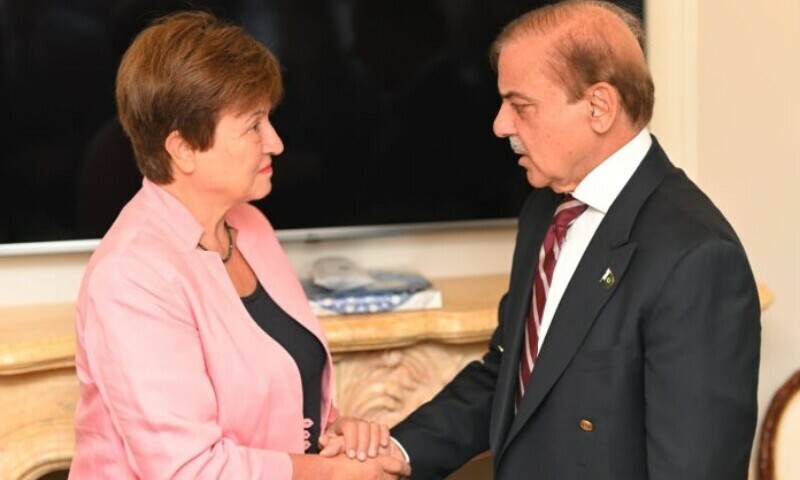Islamabad: Prime Minister Shehbaz Saturday said that he had a phone call with the Managing Director of the International Monetary Fund (IMF) on Friday, wherein he told her about the government’s resolve to complete the terms of the program.
Taking to Twitter, PM Shehbaz said he had also explained Pakistan’s economic difficulties, especially after the devastating floods, to Kristalina Georgieva, IMF’s MD.
He announced that an IMF delegation will come to Pakistan soon.
In a phone call with Managing Director of the IMF yesterday, I told her about the government's resolve to complete the terms of IMF's program. I also explained Pakistan's economic difficulties especially after the devastating floods. IMF delegation will come to Pakistan soon.
— Shehbaz Sharif (@CMShehbaz) January 7, 2023
All you need to know about Pakistan, IMF deal
The statement came just a day after PM Shehbaz had announced that the IMF delegation would visit Pakistan within two to three days to complete the ninth review of Pakistan’s $7 billion Extended Fund Facility (EFF).
Speaking at the inauguration of Hazara Electric Supply Company (HAZECO) in Islamabad on Friday, PM Shehbaz confirmed that he had asked the MD to send an IMF team for the completion of the pending ninth review of the program so that the next loan tranche is released
Under the ninth review, Pakistan is to receive $1.18 billion, which will shore up the economy and help ease the pressure on dwindling forex reserves.
As reported by the SBP, as of December 30, 2022, Pakistan’s forex reserves plunged heavily by $245.4 million to settle at a near nine-year low of $5.57 billion.
The SBP data showed that in 2022, the cumulative forex reserves of Pakistan fell to $11.42 billion from $23.88 billion at the start of the year. During the year, the SBP-held reserves declined from $17.68 billion to $5.57 billion — enough only to cover a little over one month’s imports.
Pakistan’s forex reserves plunge $245.4 million to reach $5.57 billion
The fall in reserves contributes to the worrisome situation the country finds itself in, as the reserves are also not enough to service its huge foreign debt. Despite repeated assurances from Finance Minister Ishaq Dar that the country will not default, the ground realities hardly support his claims.










